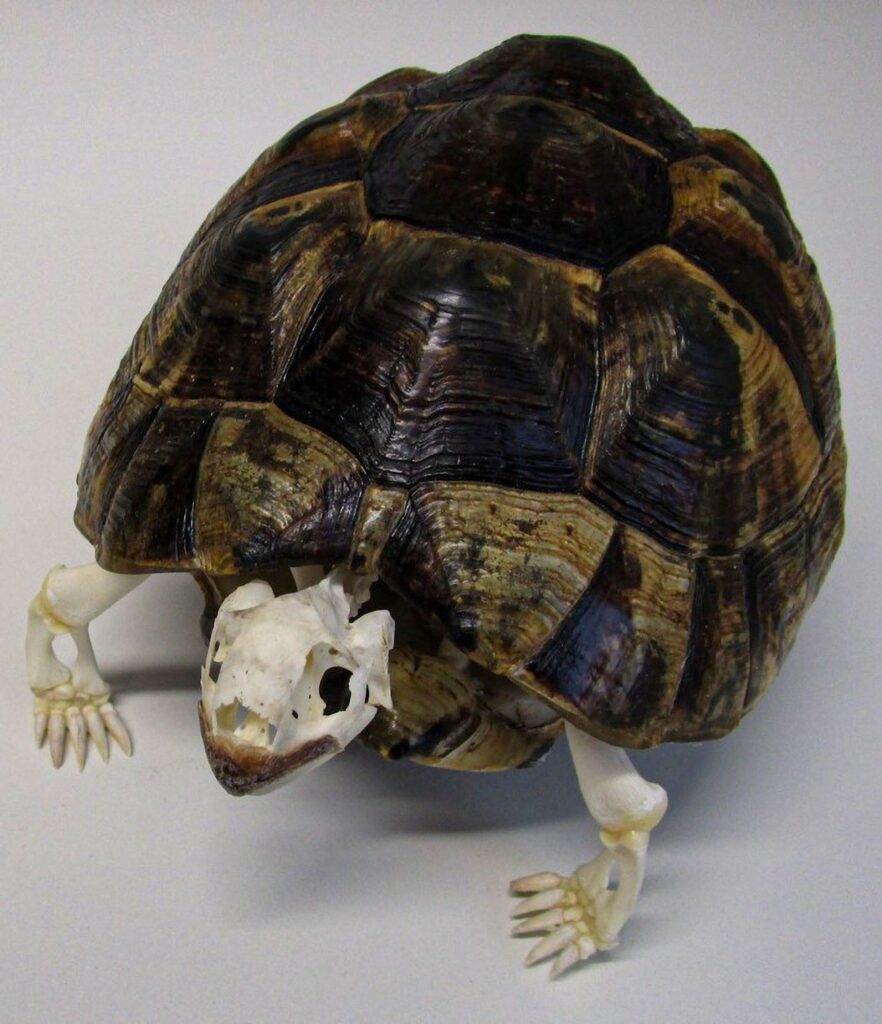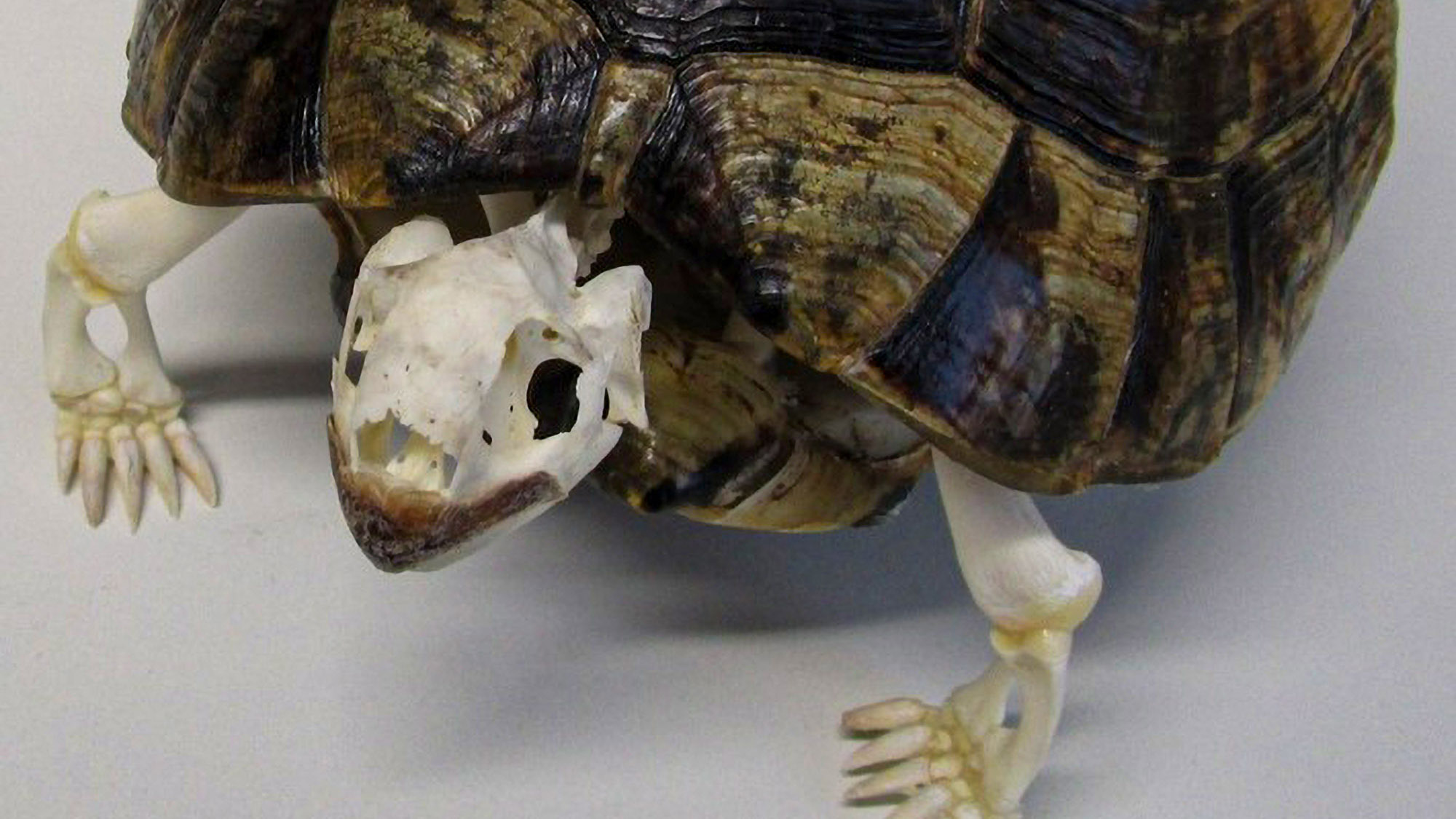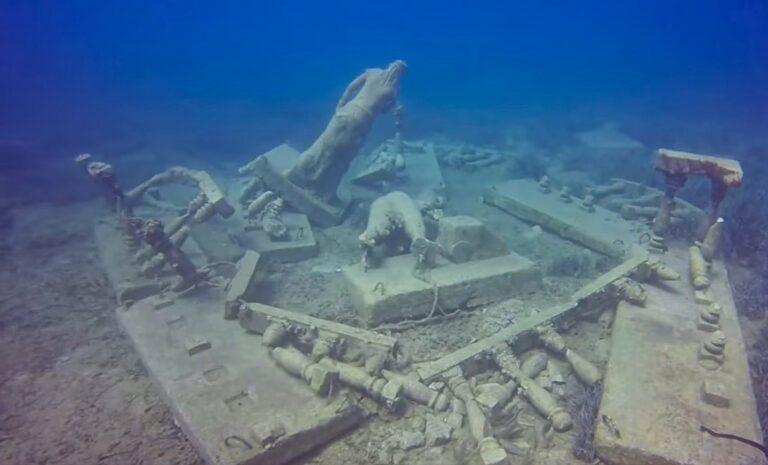German customs officers have seized a protected tortoise skeleton along with its shell that was shipped from Switzerland to Germany as a home decoration.
The officials at the Donauwoerth Customs Office located in the southern German state of Bavaria found the tortoise and its shell in a package on 19th January 2022, but the information has only been made public now.
According to the police, the specimen is a Greek tortoise (Testudo graeca), also called a spur-thighed tortoise, which is listed as ‘vulnerable’ on the IUCN’s (International Union for Conservation of Nature) Red List of Threatened Species.
Greek tortoises tend to live a long time, achieving a lifespan upwards of 125 years, with some unverified reports mentioning some specimens that lived to reach 200 years old. They are native to North Africa, Southern Europe, and Southwest Asia.
According to research conducted by the University of Thessaloniki in Greece, the oldest known definitive fossil originates from the Early Pliocene era (roughly 5 to 3.6 million years ago).
It is believed that there are only a few tens of thousands of the individuals remaining on the planet.

The reduction and fragmentation of their habitat continues as a result of infrastructural developments on the Black Sea coast, for example.
The species is strictly protected under the Washington Convention, which is also known as CITES (Convention on International Trade in Endangered Species of Wild Fauna and Flora).
Police spokesperson Ute Greulich-Stadlmayer, from the Main Customs Office in Augsburg, told Newsflash: “When importing endangered animals or plants into the European Union, a permit issued by the Federal Agency for Nature Conservation, a so-called CITES certificate, must be presented.”
Greulich-Stadlmayer added: “Exports from a country must also be supported by a CITES certificate, issued by the competent authorities. At the time of the check, the package contained only a copy of a CITES certificate, which did not meet the requirements.”
The package did not include the required paperwork, and therefore, the tortoise was confiscated by the Donauwoerth Customs officers.
The recipient has the possibility to submit the required CITES certificates within one month. It is currently unclear if the Swiss police are investigating the origin of the tortoise.
To find out more about the author, editor or agency that supplied this story – please click below.
Story By: Joseph Golder, Sub-Editor: William McGee, Agency: Newsflash
The Ananova page is created by and dedicated to professional, independent freelance journalists. It is a place for us to showcase our work. When our news is sold to our media partners, we will include the link here.




